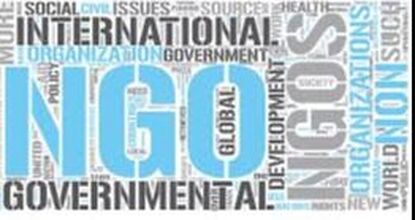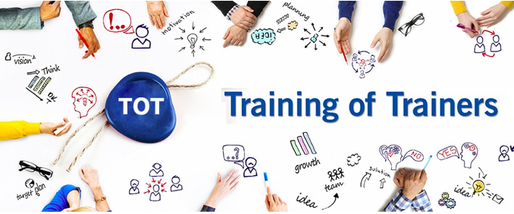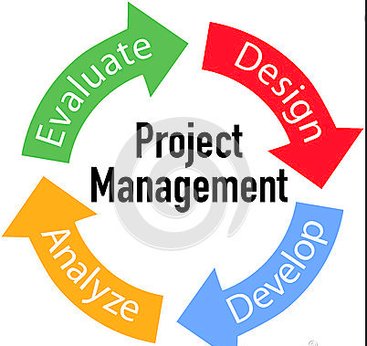Capacity Building - Trainings and Workshops

Who should attend
This course is recommended for:
Emphasis is placed on “action learning” and each module features presentations, structured learning experiences, facilitated discussions, individual and group activities.
This course is recommended for:
- Managers, Students, Technical Experts
- Project/Programme evaluators
- Project/Programme managers
- Key field staff involved in monitoring, review and/or evaluation
- Managers supervising project evaluation related activities
- People who wish to join the non-for-profit sector
- Consultants working for NGOs, C-Level executives and donors
Emphasis is placed on “action learning” and each module features presentations, structured learning experiences, facilitated discussions, individual and group activities.

NGO Management
How to manage and lead an NGO
Geneva
Successful NGOs provide high quality services to beneficiaries. Competition among NGOs in the delivery of services and in the acquisition of donor funding is rising. To achieve success, NGOs have to continually improve and professionalise their work, which puts more and more demands on the management and leadership of an organisation.This comprehensive introductory course provides you with core knowledge, practical skills and tools to manage and lead effectively a non-profit organisation. All course modules are presented by experienced specialists with both field and headquarter experience with many organisations in numerous countries.
How to manage and lead an NGO
Geneva
Successful NGOs provide high quality services to beneficiaries. Competition among NGOs in the delivery of services and in the acquisition of donor funding is rising. To achieve success, NGOs have to continually improve and professionalise their work, which puts more and more demands on the management and leadership of an organisation.This comprehensive introductory course provides you with core knowledge, practical skills and tools to manage and lead effectively a non-profit organisation. All course modules are presented by experienced specialists with both field and headquarter experience with many organisations in numerous countries.

Financial Management and Communication with Coaching
Using financial skills to maximise organisational and programme impact
Geneva
The five-day course Essentials of Financial Management with Coaching is aimed at equipping NGO directors, managers, programme staff, fundraisers, administrators and other non-finance people with a sound appreciation of finance skills. Whether working at head office or internationally, it provides the 'essentials' to effectively and efficiently manage financial resources.

Training of Trainers (TOT)
How to design, deliver and follow-up a training course
Geneva
Knowing a subject is not enough to train on it.Training adults requires specific competencies. This course provides methods and tools to ensure efficient learning process. It focuses on adult learning principles, and includes all stages of the learning cycle:
How to design, deliver and follow-up a training course
Geneva
Knowing a subject is not enough to train on it.Training adults requires specific competencies. This course provides methods and tools to ensure efficient learning process. It focuses on adult learning principles, and includes all stages of the learning cycle:
- Training needs assessment
- Methods, techniques and tools to properly design and deliver a training course and Training course follow-up.

Project Cycle Management (PCM)
The three modules in Project Cycle Management provide comprehensive training for beginners and advanced users. They will equip you with the essential skills, tools and good practices from the field to successfully manage projects in development cooperation and humanitarian work.
All modules follow a participatory approach based on case studies, with many exercises and facilitated discussions. This allows trainers and participants to bring in and share their experiences in the group.
Needs Assessment
Whilst a good needs assessment does not necessarily guarantee a good project, no needs assessment almost certainly guarantees a bad one!
Assessments are a vital element of the project cycle: they provide the information on which decisions will be made.This module enables participants to improve the quality of their needs assessment and therefore the relevance of potential interventions which may follow. It focuses on the various tasks to be done throughout the whole assessment process as well as techniques and tools used to improve the collection of information during interviews with stakeholders.
Planning, Programming and Monitoring Projects
In this module, participants are first introduced to the Results-Based Management (RBM) concept and its application in project management. RBM focuses on the performance and achievement of objectives and is the dominant management strategy in use.
Then, participants are working through the project planning and activities programming steps. The main tool used is the logical framework. It provides a structured model for identifying expected results as well as the activities and inputs needed to accomplish them. The course also provides additional techniques and tools to identify stakeholders, analyze problems, define objectives in line with population’s needs and program human, financial and logistic resources in an efficient way.
Finally, participants discuss how to design and implement a proper monitoring.
Evaluating projects
This course focuses on internal and external project evaluation and presents how these tools are used to measure and improve the performance of projects. Participants work step by step on the process of designing and performing an evaluation.
After reviewing key management issues required to design an evaluation plan (i.e., Results-Based Management and Project Cycle), participants focus on the main concepts in the field of projects evaluation (i.e., founding principles, types and criteria).
The course then presents the phases and the steps of the evaluation process:
The three modules in Project Cycle Management provide comprehensive training for beginners and advanced users. They will equip you with the essential skills, tools and good practices from the field to successfully manage projects in development cooperation and humanitarian work.
All modules follow a participatory approach based on case studies, with many exercises and facilitated discussions. This allows trainers and participants to bring in and share their experiences in the group.
Needs Assessment
Whilst a good needs assessment does not necessarily guarantee a good project, no needs assessment almost certainly guarantees a bad one!
Assessments are a vital element of the project cycle: they provide the information on which decisions will be made.This module enables participants to improve the quality of their needs assessment and therefore the relevance of potential interventions which may follow. It focuses on the various tasks to be done throughout the whole assessment process as well as techniques and tools used to improve the collection of information during interviews with stakeholders.
Planning, Programming and Monitoring Projects
In this module, participants are first introduced to the Results-Based Management (RBM) concept and its application in project management. RBM focuses on the performance and achievement of objectives and is the dominant management strategy in use.
Then, participants are working through the project planning and activities programming steps. The main tool used is the logical framework. It provides a structured model for identifying expected results as well as the activities and inputs needed to accomplish them. The course also provides additional techniques and tools to identify stakeholders, analyze problems, define objectives in line with population’s needs and program human, financial and logistic resources in an efficient way.
Finally, participants discuss how to design and implement a proper monitoring.
Evaluating projects
This course focuses on internal and external project evaluation and presents how these tools are used to measure and improve the performance of projects. Participants work step by step on the process of designing and performing an evaluation.
After reviewing key management issues required to design an evaluation plan (i.e., Results-Based Management and Project Cycle), participants focus on the main concepts in the field of projects evaluation (i.e., founding principles, types and criteria).
The course then presents the phases and the steps of the evaluation process:
- Design phase
- Conduction of the evaluation
- Look into activities related to the communication and sharing of the findings





